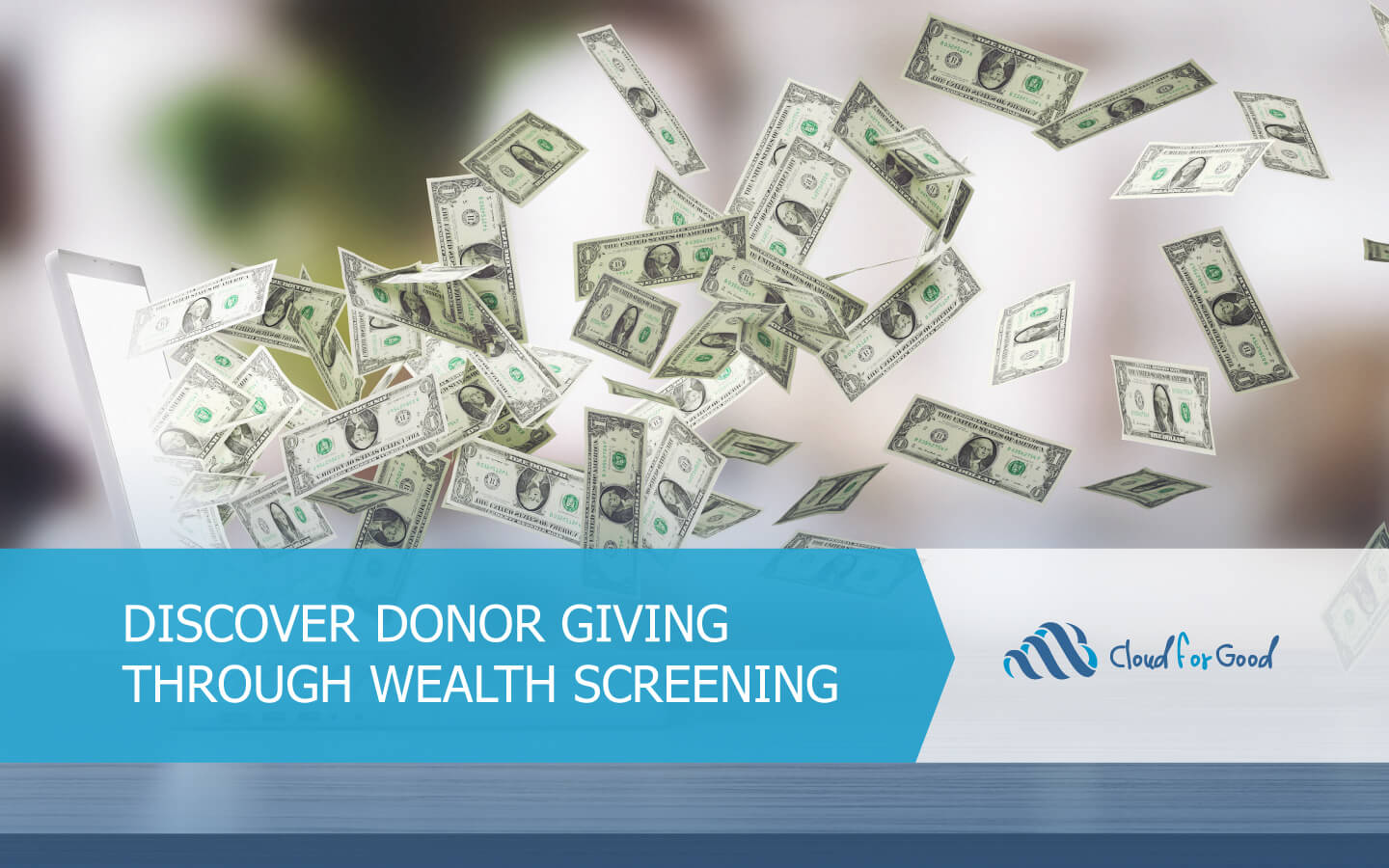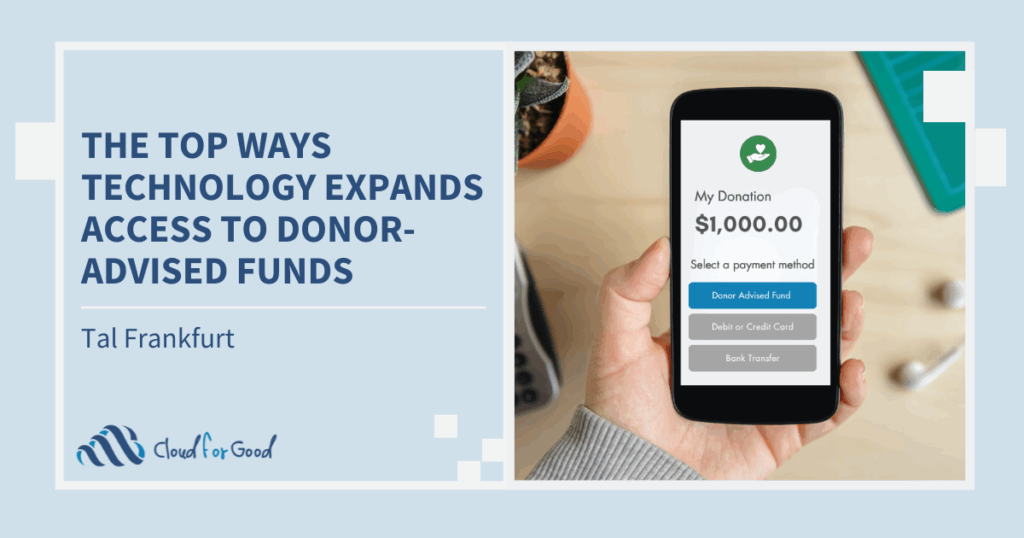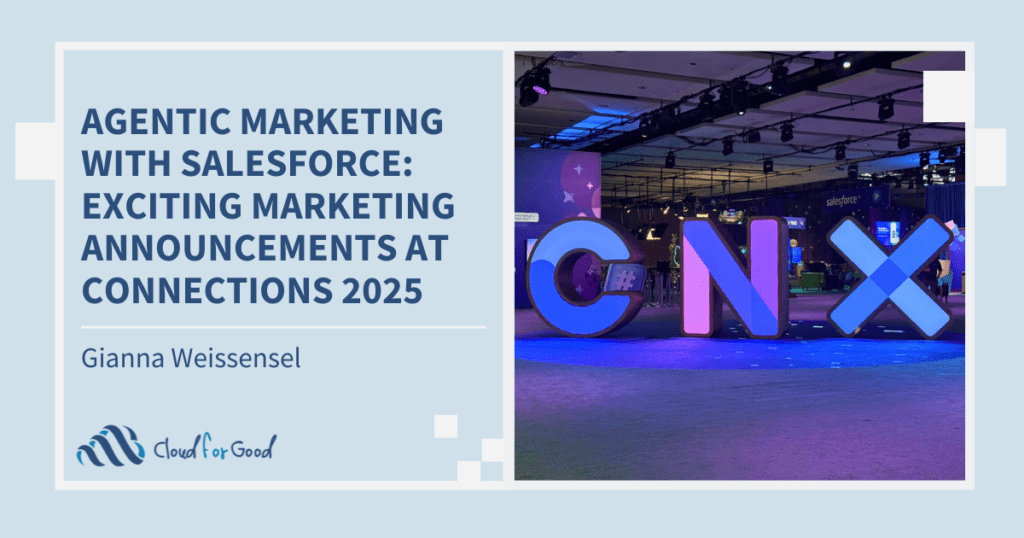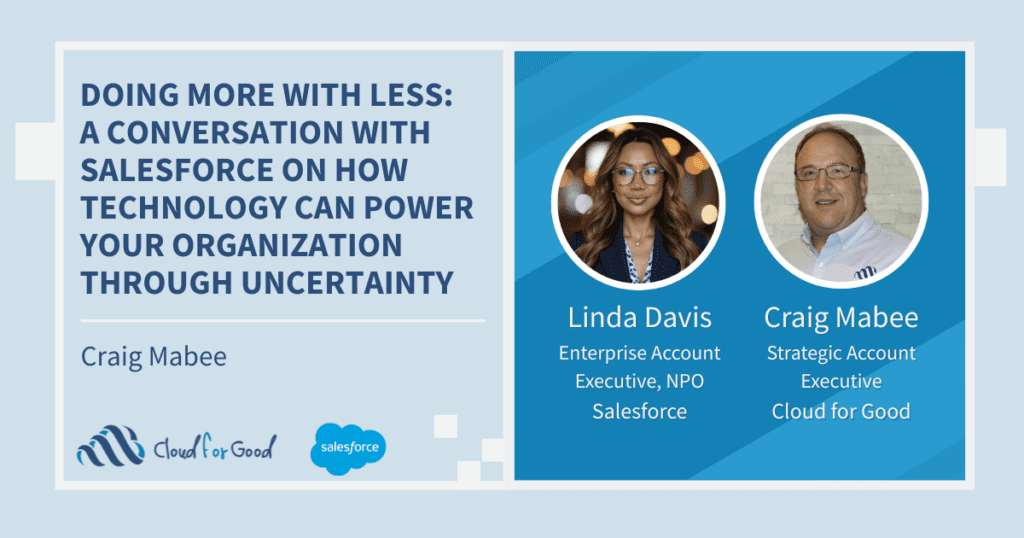Prospecting within your existing database of constituents is a great place to start your fundraising efforts, but it can be difficult to identify their capacity to give. Wealth screening may help. It can be a valuable first step in your prospecting process. By knowing your donors’ wealth standing, you can tailor your asks and segments your database all while identify potential major donors.
What is Wealth Screening?
Wealth screening is a tool that organizations can use to determine their constituents’ capacity to give. You can use wealth screening to help set goals for fundraising campaigns, plan your direct asks and find potential major donors from a large pool of constituents by learning about their capacity, likelihood to give and relationships to other prospects.This helps paints a clearer picture of your donor’s ability and inclination to give.
How Does Wealth Screening Work?
Wealth screening looks at the 7 categories of giving that can indicated a higher likelihood of giving a major or planned gift. These 7 categories include:
-
Previous charitable donation to your nonprofit.
Donors who have given to your organization in the past at any level, in combination with capacity, are more likely to give to your organization in the future if asked.
-
Donations to other nonprofit organizations.
Donors who have given charitable gifts of $5,000 or more are more likely to increase their charitable giving in the future.
-
Political donations.
Political donations demonstrate a higher likelihood to give because they have an openness to give when a donor feels compelled to do so.
-
Non-profit involvement.
A donor or prospect who is volunteer, event attendee, program participant or board member at your organization or other similar organizations demonstrate a commitment to the cause and have a higher likelihood of giving.
-
Real estate ownership.
Donors and Prospects with real estate holdings of $750,000 or more are more likely to donate than the average person.
-
Business affiliations.
Is you donor or prospect a business executive, on the board of a major corporation or a major business investor? Business affiliations can open doors to major gifts from corporations.
-
Stock ownership.
Owning stock is important because it is an indicator of donor influence, major donor connections, potential donations of stock, corporate grant opportunities.
Why Use Wealth Screening?
Not every donor in your system is necessarily meeting their donation potential. That $10 a month direct mail donor might be a hidden gem for major or planned giving and you have no way to tell based on their giving to your organization. They may have only ever been asked for $10 per month, so that is what they have given.
Knowing more about the donors inside your own database will help you raise more funds for your organization. Without performing this type of wealth screening, you may have never known that this donor had the capacity (and desire) to give more if your organization simply asked.
When is a Good Time to Perform Wealth Screening?
You can run wealth screening at any point. A great place to start is if your organization is preparing for any major fundraising campaigns or events. This type of prospecting can give you a way to identify realistic fundraising goal (and subsequently filling the pipeline) for those campaigns and events
What do I Need to do to Get Ready for Wealth Screening?
To take full advantage of wealth screening and get the most accurate information, you’ll want to inspect your data before you hand it over to a wealth screening company. Some great steps to take include:
-
Cleaning your data.
It is important to ensure that your data has been cleaned of duplicates. You do not want to pay to have a donor screened multiple times. Purge your data of lapsed donors. You do not want to screen donors who have not given in years.
-
Think about Screening your data in smaller segments.
Event attendees and loyal donors are already invested in your organization so will have a higher likelihood of giving a major donation, if they have the capacity.
-
Prioritize philanthropic indicators.
Think about what philanthropic indicators are important to you. Do you want to focus on donors who have given gifts to other similar organizations? Is there level of wealth that is most important to your organization? Or is there a combination of indicators that hit the sweet spot for you?
Great Wealth Screening Tools:
There are many wealth screening systems on the market, but there are two which have a particularly good relationship with Salesforce. If your using Salesforce as your CRM, using one of these tools will make it easier to manage the process.
-
iWave
iWave’s tool, called PROscreen, rates each individual’s propensity, affinity/inclination, and baseline capacity to make up a PROscore. PROscore has the flexibility to customize each component weighting, provide transparency around where the results come from and gives the ability to validate, add or delete records.| Additionally, iWave has a Salesforce App called PROscore for Salesforce. Access to a donors PROfile can be accessed directly in Salesforce. Learn more here.
-
Wealth Engine
Wealth Engine has access to 300 million individuals and 122 million households as well as access to data from more than 60 sources. Wealth Engine helps you to find prospects with a high rate of conversion based on wealth, income, lifestyle and affinity scoring. Additionally, Wealth Engine has a Salesforce app called WE Connector for Salesforce. The WE Connector has the following features: One click to add wealth data directly to a Salesforce record, Bulk Screening to screen a list of contacts directly in Salesforce, a search functionality that can send leads directly from Wealth Engine to Salesforce and auto-appending of wealth data when inserting new records. Learn more here.
You may also enjoy:





